Understanding Debt Management Plans
 When struggling with debt, it’s crucial to explore all available options. One such option is a Debt Management Plan (DMP). DMPs are agreements between you and your creditors, managed by a credit counseling agency. They aim to make your debt more manageable by consolidating it and potentially reducing interest rates and monthly minimums and waiving late fees.
When struggling with debt, it’s crucial to explore all available options. One such option is a Debt Management Plan (DMP). DMPs are agreements between you and your creditors, managed by a credit counseling agency. They aim to make your debt more manageable by consolidating it and potentially reducing interest rates and monthly minimums and waiving late fees.
Is There a Minimum Debt Amount to Enroll in a Debt Management Plan?
One common question that arises is whether there’s a minimum debt threshold to qualify for a DMP. The simple answer is: it depends.
- Credit Counseling Agencies: Each agency sets its own criteria. Some might require a minimum debt amount (often around $1,000 to $2,000), while others may not. Most reputable Credit Counseling Agencies which are a member of the Financial Counseling Association of America (FCAA) and are registered with the BBB do not require a minimum debt amount to enroll.
- Type of Debt: DMPs only handle unsecured debts like credit card debt, personal loans, collections, and medical bills. The amount of your unsecured debt can influence eligibility.
- Your Financial Situation: Agencies also consider your ability to pay off the debt. If your debt is too low, a DMP might not be cost-effective compared to other repayment strategies.
Why Consider a Debt Management Plan?
- Simplified Payments: Instead of juggling multiple payments, you make a single payment to the credit counseling agency, which then distributes it among your creditors.
- 2. New Terms: These agencies have preset benefits in place with your creditors that offer much lower interest rates, reduced monthly minimum payments, and waived fees.
- Avoiding Bankruptcy: A DMP can be an alternative to bankruptcy, which has a more significant impact on your credit score.
Avoiding Further Debt: With a structured plan, you’re less likely to rely on new credit, preventing further debt accumulation.
Alternatives to Debt Management Plans
If your debt doesn’t meet the threshold for a DMP, or if a DMP isn’t right for you, consider these alternatives:
- Debt Settlement: This involves negotiating with creditors to pay a lump sum that’s less than the full amount you owe. Although, settled debts can significantly lower your credit score. Forgiven debt might be considered taxable income and Debt settlement companies usually charge a percentage of the settled amount.
- Personal Loan: A loan can consolidate debts at a lower interest rate. However, if you’re not disciplined, you might accrue new debt on top of the consolidation loan. Debt consolidation loans may require collateral, risking assets like your home. And upfront costs or origination fees can add to the overall expense.
- Balance Transfer Credit Cards: These cards offer low or no interest rates for a limited time, often between 12-18 months, allowing you to pay down debt faster. Still, if not paid off, remaining balances can attract high post-promotional rates. And there’s often a 3-5% fee on the transferred amount.
Conclusion

About the Author
Eric has amassed extensive experience in the financial and credit counseling sector, dedicating numerous years to this industry. Presently, he serves as a certified credit counselor at Debt Reduction Services, leveraging his expertise to assist individuals in managing their debts effectively. Throughout his career, Eric has consistently exhibited his commitment to empowering consumers with the knowledge and tools necessary to navigate their financial challenges.



 Avoiding Further Debt: With a structured plan, you’re less likely to rely on new credit, preventing further debt accumulation.
Avoiding Further Debt: With a structured plan, you’re less likely to rely on new credit, preventing further debt accumulation.







